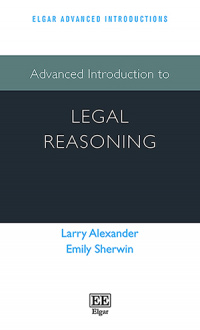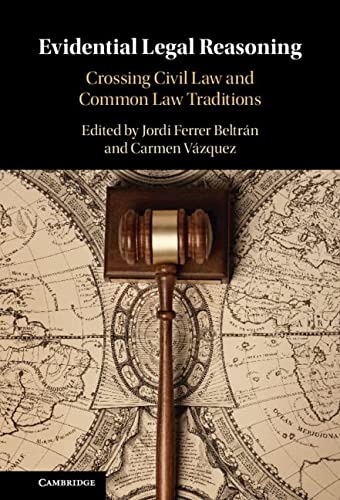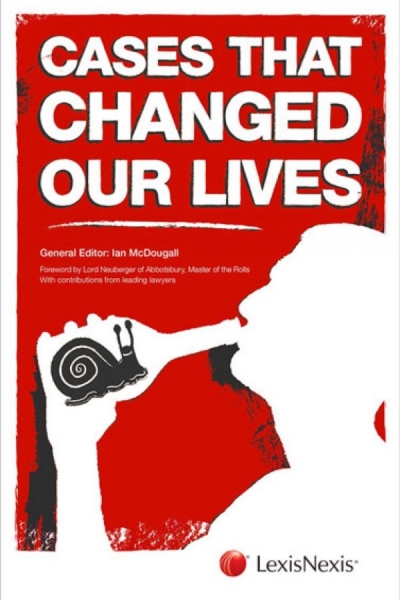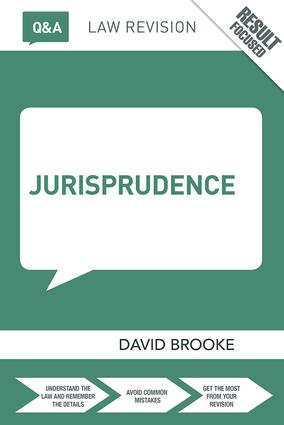Description
- Discusses different theoretical approaches to legal evidence (for example, the Bayesian approach and explanationism)
- Covers epistemology, philosophy of language and mind, moral and political philosophy, psychology and the limits of cognition and critical theories.
- Offers a cross-disciplinary approach to evidence law, including philosophy (law, philosophy, psychology, mathematics, linguistics)
- Written by a team of leading scholars from twelve countries
Description
Philosophy has a strong presence in evidence law and the nature of evidence is a highly debated topic in both general and social epistemology; legal theorists working in the evidence law area draw on different underlying philosophical theories of knowledge, inference and probability. Core evidentiary concepts and principles, such as the presumption of innocence, standards of proof, and others, reply on moral and political philosophy for their understanding and interpretation.
Written by leading scholars across the globe, this volume brings together philosophical debates on the nature and function of evidence, proof, and law of evidence. It presents a cross-disciplinary overview of central issues in the theory and methodology of legal evidence and covers a wide range of contemporary debates on topics such as truth, proof, economics, gender, and race.
The volume covers different theoretical approaches to legal evidence, including the Bayesian approach, scenario theory and inference to the best explanation.
Divided in to five parts, Philosophical Foundations of Evidence Law, covers different theoretical approaches to legal evidence, including the Bayesian approach, scenario theory and inference to the best explanation.
Table of Contents
Evidence, truth and knowledge
1:Evidence and truth, Hock Lai Ho
2:The Naturalized epistemology approach to evidence, Gabriel Broughton, Brian Leiter
3:Proven facts, beliefs and reasoned verdicts, Jordi Ferrer Beltrán
4:The role of the expert witness, Lena Wahlberg, Christian Dahlman
Law and factfinding
5:The role of rules in the law of evidence, Frederick Schauer
6:Excluding evidence for integrity’s sake, Jules Holroyd, Federico Picinali
7:Second-personal evidence, Alex Stein
8:Burdens of proof, Mark Spottswood
9:Weight of evidence, Dale Nance
10:Cost-benefit analysis of fact-finding, Talia Fisher
Evidence, language and argumentation
11:Linguistic evidentials and the law of hearsay, Lawrence Solan
12:The pragmatics of evidence discourse, Giovanni Tuzet
13:Argumentation and evidence, Floris Bex
Evidence and explanation
14:Inference to the best explanation, relative plausibility and probability, Ronald Allen, Michael Pardo
15:The scenario theory about evidence in criminal law, Anne Ruth Mackor, Peter van Koppen
16:Coherence in legal evidence, Amalia Amaya
Evidence and probability
17:The logic of inference and decision for scientific evidence, Franco Taroni, Alex Biedermann, Silvia Bozza
18:Bayesianism: objections and rebuttals, Norman Fenton, David Lagnado
19:The problem of the prior in criminal trials, Christian Dahlman, Eivind Kolflaath
20:Generalizations and reference classes, Michael Pardo, Ronald Allen
Proof paradoxes
21:Paradoxes of proof, Mark Spottswood
22:The problem of naked statistical evidence, Christian Dahlman, Amit Pundik
Biases and epistemic injustice
23:Evidence law and empirical psychology, Justin Sevier
24:Relevance through a feminist lens, Julia Simon-Kerr
25:Race, evidence and epistemic injustice, Jasmine Gonzales Rose
26:De-biasing legal fact-finders, Frank Zenker






